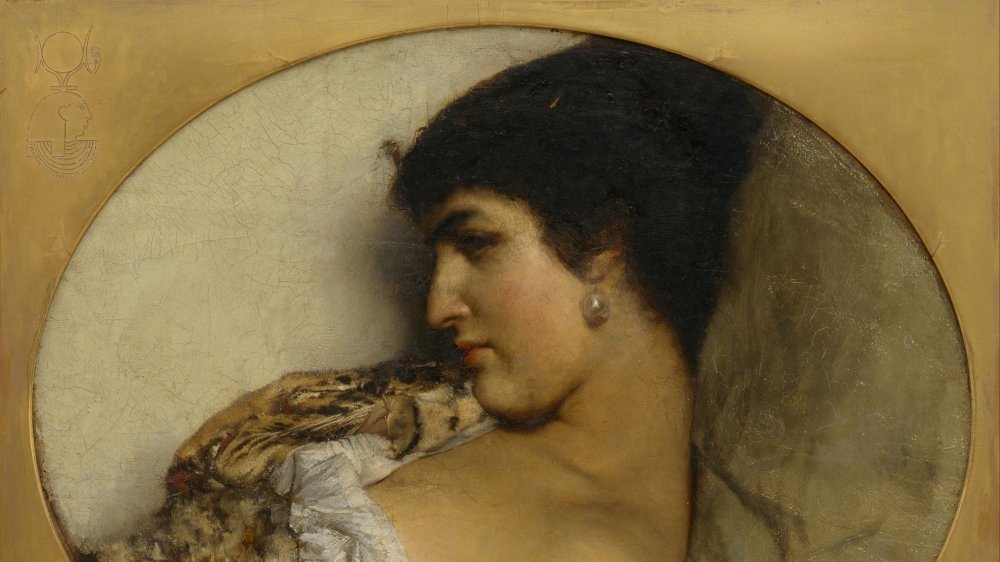Here's What Made Cleopatra So Different From Other Egyptian Rulers
Famous Egyptian ruler Cleopatra didn't simply grace her throne. She was a woman of keen intellect. The evidence? Cleopatra spoke a variety of languages during her lifetime. Not only did she know Greek, which was native to the Ptolemaic dynasty, she also picked up languages spoken by those around her, such as the Arabs, Syrians, Parthians, Medes, and Ethiopians. She was also the only ruler from her dynasty who spoke the language that was native to Egypt. Others from the dynasty didn't bother with Egyptian culture or traditions and preferred restricting themselves to Alexandria.
Cleopatra, however, differed from her contemporaries, and was open-minded enough to learn about other cultures. As per Ancient Origins, the queen had several talents besides linguistics. She could decipher hieroglyphics, for example, and was fond of learning in general. She studied several disciplines, including geography, history, astronomy, medicine, and economics. She was also fairly comfortable embracing Egyptian culture and molded herself into a local, wearing traditional clothes and prominently taking part in Egyptian festivals and gatherings.
She was respectful of the culture of her subjects
The queen was good at her job. Because she embraced the culture and respected the origins of her subjects, she was very popular as a ruler. It helped that she was genuine in her approach and chose to be a natural leader by actively being involved, as opposed to the indifference of those who came before her.
As per Plutarch's Life of Antony (XXVII.2-3, via the University of Chicago), written around the beginning of the Second Century CE, Cleopatra was charismatic and self-aware. "For her beauty, as we are told, was in itself not altogether incomparable, nor such as to strike those who saw her; but converse with her had an irresistible charm, and her presence, combined with the persuasiveness of her discourse and the character which was somehow diffused about her behavior towards others, had something stimulating about it. There was sweetness also in the tones of her voice; and her tongue, like an instrument of many strings, she could readily turn to whatever language she pleased," wrote Plutarch.

